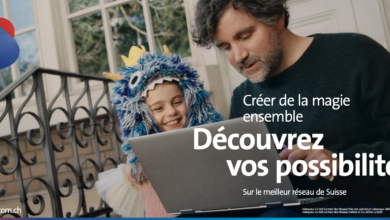adfinity: expansion en Suisse romande
L’intermédiaire de pub online, admazing SA, lance comme premier en Suisse un réseau de performance multilingue sous forme d‘annonces texte-image.
Depuis fin 2009 le réseau de performance «adfinity» permet la réservation simple et efficace de campagnes de performance sous forme d’annonces texte-image sur les sites bluewin.ch, search.ch et les plate-formes du groupe scout. Le premier réseau suisse de performance livre aujourd’hui´hui plus que 150 millions d’adimpressions par mois et facilite la réservation de campagnes ciblants sur les fenêtres français des portails nationaux. Opérateur du réseau est admazing SA, l’intermédiaire indépendant de publicité online en Suisse.
adfinity rend plus facile la réservation de publicité de performance sur des sites premium en Suisse alémanique et en Romandie: avec des dépenses minimales et un temps de préparation court de larges cibles peuvent être atteints dans un contexte valorisé. Grâce à la concentration sur des sites suisses premium et le renoncement au trafic long-tail le réseau produit des clicks très qualitatifs. «A cause du taux de conversion élevé et la simplicité du processus de réservation adfinity fait déjà partie intégrante de notre budget online» précise Franziska Weigel, chef de marketing adjoint de travelwindow SA. La facturation se fait sur base de CPC. L’amélioration de la performance se fait automatiquement, ce qui est également en faveur des sites. Entretemps plusieurs dizaines de clients sont persuadés de l’efficacité. Les éléments clés pour le succès sont: la facturation sur base de click (CPC), le contrôle complet à travers la conversion tracking, l’optimisation automatique de la performance et le reporting dans le tool unique «adcockpit».





